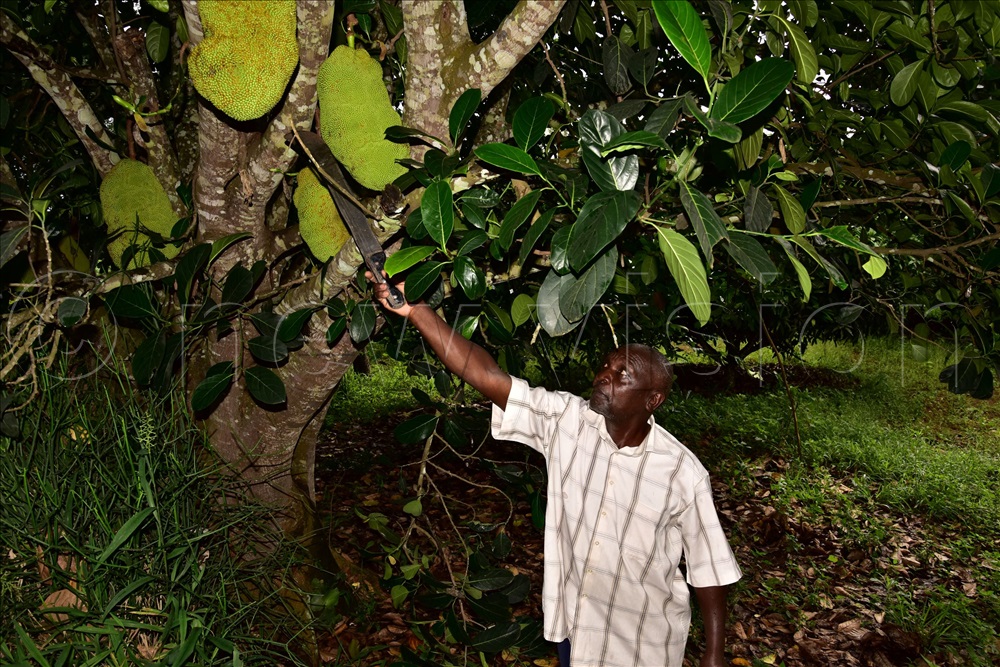By Umar Nsubuga
Fruit trees are not only a source of nutritious food but also enhance the beauty of your compound and contribute to environmental conservation.
However, for them to thrive and produce high-quality fruits, proper care and management are essential, particularly during their formative years.
Isam Kambugu, a professional gardener and farmer says the first three years of a fruit tree’s life are critical. During this period, the trees are establishing their roots and building resilience to withstand environmental challenges.
He says fruit trees are not just a source of food; they can also be an economic asset, so if you don’t care for them in the beginning, the years they take may be a big loss. For example, Jackfruit, beyond being eaten fresh, can be preserved as syrup or dried for longer storage. It is a great addition to fruit salads.
Mangoes can be consumed fresh, juiced, or processed into jams and pickles.
Avocados, are highly nutritious and sought after in both local and international markets.
Fruit trees require a balanced supply of nutrients to grow robustly and bear healthy fruits. Kambugu recommends applying fertilisers with medium potassium and high nitrogen content.
“Apply 1-1.5 kg of fertiliser per tree annually. Divide the application into three to four phases during the growing season to ensure steady nutrient availability,” he explains.

Watering
Watering is especially crucial during the dry season when young trees may struggle to access moisture deep in the soil.
“Consistent watering helps the roots establish firmly and supports healthy growth,” Kambugu advises.
Pest and disease management
While fruit trees can occasionally fall victim to pests and diseases, Kambugu suggests opting for natural remedies instead of chemicals.
“Organic sprays are effective and safer for both the environment and consumers,” he notes.
Pruning
Kambugu says pruning is a vital practice to shape the tree, remove dead or diseased branches, and encourage fruit production. Keeping weeds away from the base of the tree prevents competition for nutrients and water.
Stephen Lumbuye, a fruit tree farmer from Mubende says varieties such as Hass, Fuerte, and Bacon, are relatively low-maintenance.
Soil requirements, he says avocados thrive in well-aerated soil with a good organic matter content and a depth of at least one meter.
Maturity timeline, avocado trees take 30-36 months to mature and start bearing fruits.
Manure use, natural manure, such as compost, is sufficient to support their growth.
Lumbuye stresses that avocados are an excellent investment for anyone looking to plant fruit trees, as they require minimal input and yield significant returns.
Mangoes
Mangoes, a favourite among many Ugandan households, are both versatile and prolific.
According to Lumbuye, mangoes have two main harvest seasons, May to July and October to December.
Regular watering during dry spells and organic fertilisers enhance fruit quality.
Prune mango trees to maintain manageable sizes and allow sunlight penetration to all parts of the tree.
Jackfruits
Jackfruit trees are hardy, highly productive, and offer multiple planting options, such as propagation from seeds or stems.
Lumbuye provides practical advice for planting and managing jackfruit trees.
Planting
Dig a 3×3-foot hole and fill it with compost manure before planting. Ensure the tree receives ample sunlight for optimal growth.
Pruning
Once the tree grows beyond 12 feet, cut the main trunk back to eight feet to encourage dense branching.
Harvest timeline
Jackfruit trees start bearing fruit three to four years after planting, young jackfruit trees produce about 30 fruits annually, while mature trees can yield over 100 fruits each year.





